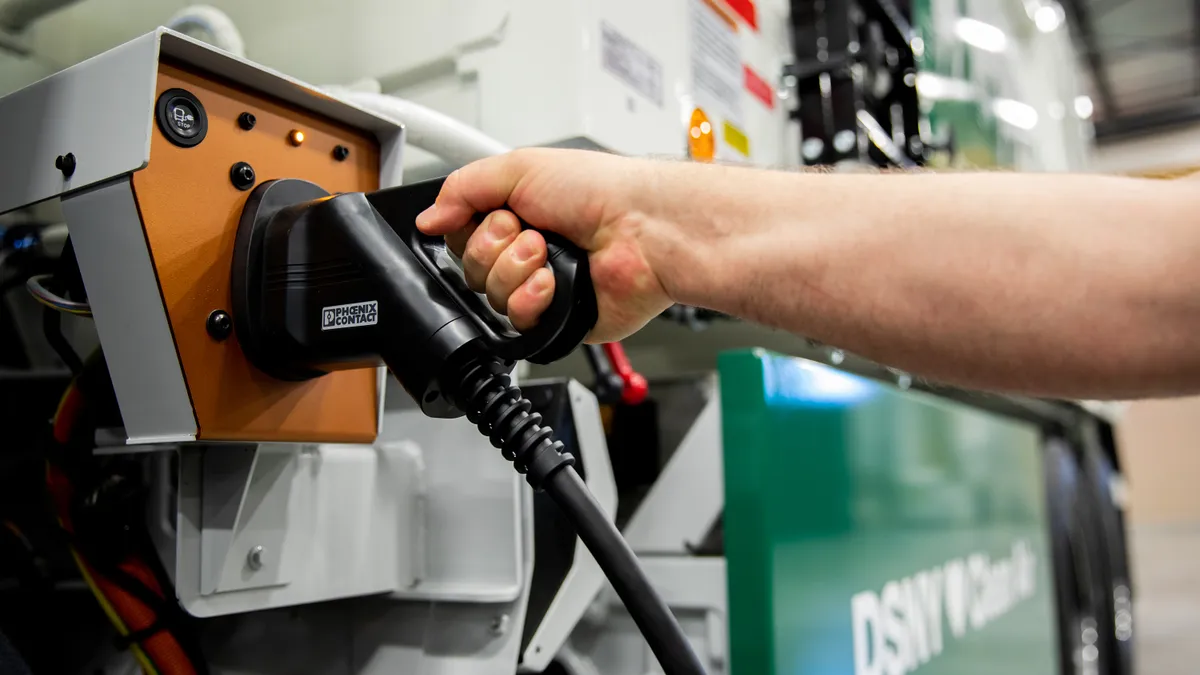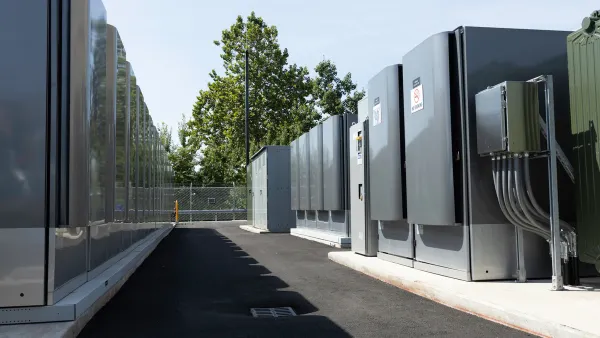Dive Brief:
- Schneider could save $554,813 in annual fuel costs by electrifying its 42-truck fleet based out of Stockton, California, according to a study prepared by Gladstein, Neandross & Associates funded by the Environmental Defense Fund. And NFI could save $748,311 annually by electrifying its fleet of 50 trucks that operate out of Chino, California, according to the report released Wednesday.
- But the report also found that those savings are not enough to mitigate upfront infrastructure costs required to support the electric fleets. Schneider would pay $8.9 million, while NFI would need to shell out $10.4 million. Those costs include charging hardware and construction.
- EDF called charging infrastructure "the greatest challenge of electrifying heavy-duty trucks," and recommended governments and utilities pursue policies to help bring down the upfront costs for fleets.
Dive Insight:
Whether a fleet or OEM has invested in battery-electric vehicles, fuel-cell-electric vehicles or both, infrastructure is one of the biggest question marks.
Standing up a national hydrogen network presents steep funding and other challenges.
Electric charging capabilities are becoming more commonplace around the country as electric passenger cars grow in popularity. But stations that can accommodate heavy-duty trucks require more power.
NFI is testing 10 electric Daimler trucks out of Chino, and building chargers was the longest part of the project, NFI Senior Vice President of Fleet Services Bill Bliem said in February.
One lesson NFI learned during that process was how different it was to deal with a utility company's rates, rather than paying for a standard fuel source.
"Charging infrastructure investments required for Class 8 fleets are significant and can vary dramatically," the EDF said.
The EDF's study modeled 32 scenarios — combinations of charging strategies, charge power ratings and battery capacities — to examine cost structures. Managed charging, versus unmanaged, was noted as an important tool for mitigating fleets' costs.
In an unmanaged charging strategy, a fleet would charge a truck at full charging speed, immediately whenever needed. In managed charging, the fleet would consider time of use and schedule charging around peak periods (while still ensuring the truck is fully charged before it departs). The fleet would also adjust the charging speed to use the minimum amount required to fully charge the battery within the window of time.
The latter strategy requires fleets to dedicate more resources to scheduling. And the EDF said trucking firms can use real-time data, such as grid load and electricity costs, to do so.
But, because managed charging is important for fleets and the grid, the EDF also recommended that states and utilities pursue policies and programs that encourage and reward fleets for using managed charging.
In addition to managed charging, fleets can reduce energy demands on the grid, costs and emissions through use of distributed energy resources, including on-site solar-power generation and battery energy storage systems. For models in which Schneider used managed charging and DERs, the EDF found it would save $625,000 annually. NFI would save $835,000 annually.
Just as managed charging requires fleets to provide extra resources, so would DERs. So, the EDF recommended states and utilities encourage and reward fleets for investing in them.
The EDF also recommended that state and federal agencies should consider policies, programs or market-based tools that reduce upfront infrastructure costs for fleets, as well as accelerate R&D to improve battery performance and optimize en-route charging infrastructure design.
Schneider plans to make short- and long-term investments in internal R&D. In its sustainability strategy released this year, it committed to testing electric powertrains and developing adoption plans for zero-emissions vehicles. But it's also looking to double its intermodal size by 2030 — a plan that can bear fruit short term, without the uncertainties of EV infrastructure.
"Electrifying heavy-duty trucks will require getting charging right, especially for fleet owners," the EDF said in the report.















